It is well known that Ernst Bloch lived in Cambridge, Massachusetts (near Huron Ave.) during much of his time in the US following his exile from Europe in 1939. What I did not learn until recently is that from June 1940 into 1941 Bloch, with his wife and young son, stayed at Merrywood, a grand estate (originally the estate of the novelist Paul Leicester Ford [1865-1902]) on Stone Pond on the eastern edge of the town of Marlborough, New Hampshire. They were guests of Mrs. Kershaw, the widow of the Director of the Museum of Fine Arts in Boston. The Bloch family stayed in a small house on the lake, near Kershaw’s “mansion” and this was a godsend for the family who were at first quite lost in this country (as is reported in William Eddy’s Stone Pond: Personal History, 2006). Karola Bloch, the philosopher’s wife, later wrote that much of the Das Prinzip Hoffnung was first written at Stone Pond.
Since Marlborough, New Hampshire is only about fifty miles from where I live in Central Massachusetts (and his Cambridge address is not even two miles from where I lived as a teenager!), we (my wife and son and I) decided to take a drive up to Stone Pond and see what we could find. The pond is off the beaten track at the end of a couple of miles of old dirt road off the highway. Although the estate seems to be gone, now several small houses stand by the pond and quite a few more are under construction. There was not much place to park, nor much public access, but we managed to walk around the pond some and look around the very small but quite lovely St. Francis Chapel (built 1926, designed by Frederick Warren Allen) that still stands there—as you can see below—and is still used for weddings.
As the photos below also show, Stone Pond is a typical small New England pond, about 80 acres, in a heavily wooded area with a splendid view of Mount Monadnock in the middle distance. This sort of locale, along with its eco-system, is very close to my heart and feels like home to me. So I can easily imagine writing in this bucolic place, but can hardly imagine the profoundly mixed sentiments Bloch must have felt, so far from the home he’d been forced to leave, watching the culture he loved hatefully perverted by Nazism, at war to conquer Europe and destroy the good Germany. And still he found the spirit and will to write a great, deep treatise on Hope.

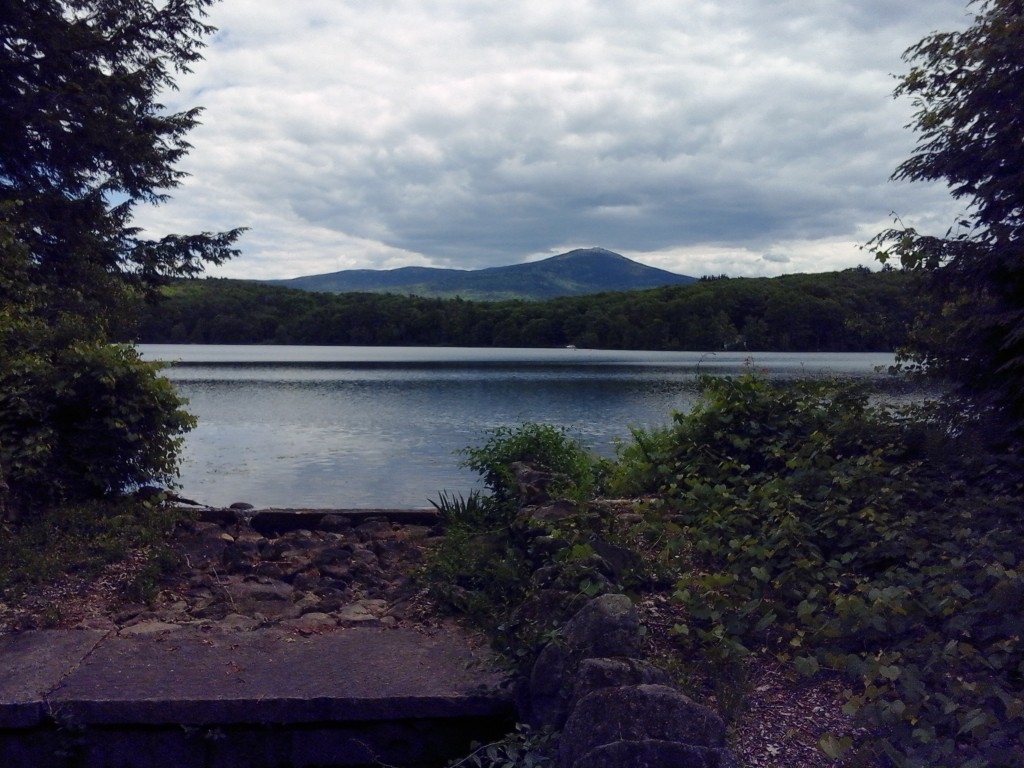





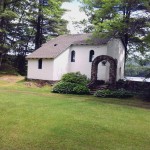
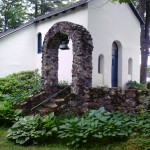

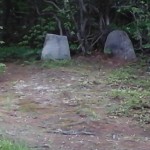
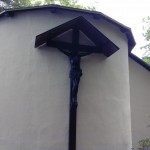
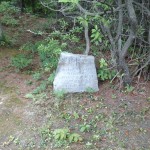
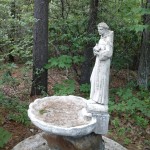

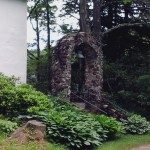

Justin Kershaw was quite the host for a number of emigrants. Dr. Alfred Oppler who was a Supreme Court Justice on the Labor Court in Germany came over and was a guest of Mrs. Kershaw. He needed employment so she had him working as a gardener but he was not very good. He was much better as a pianist and did that for a while at Merrywood. Thereafter at the end of the war, with his labor expertise, he was invited by General MacArthur over to Japan to reconstruct the labor unions. My father was in Japan from 1950 onwards and when we came to Stone Pond and ended up buying some property, our neighbor was Dr. Oppler from Japan. It is a small world.